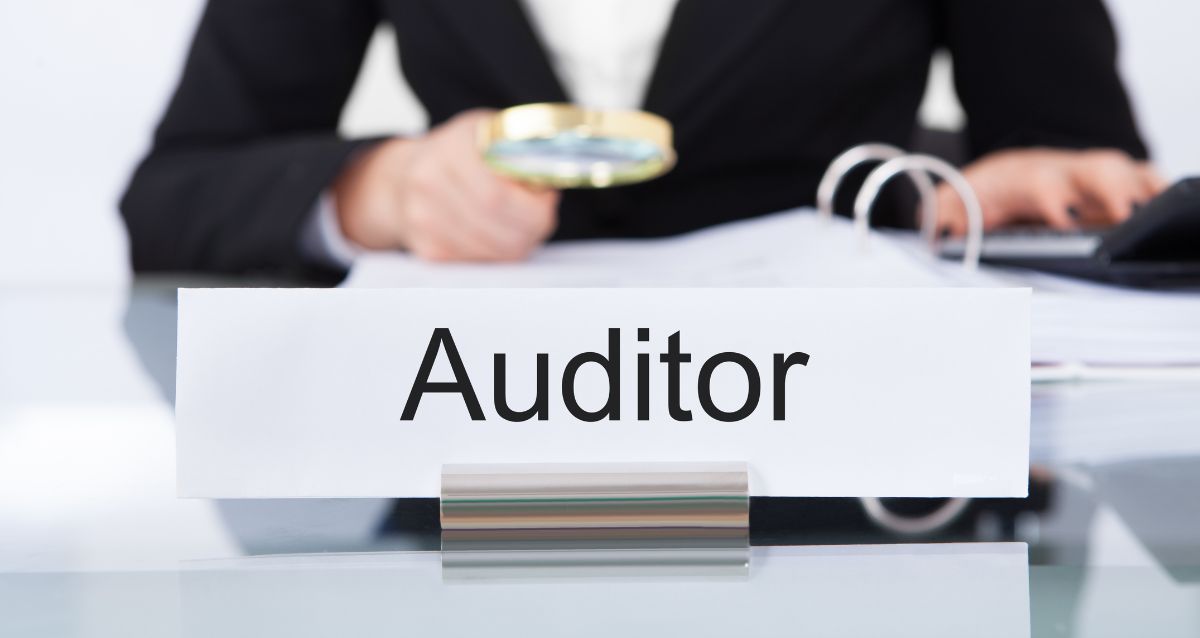Importance of Auditor’s Independence
The concept of auditor independence is of utmost importance in maintaining professionalism and ethical conduct. It refers to the ability of auditors to avoid any influence or constraints that could hinder the correct course of action. Independence allows auditors to make unbiased decisions and produce impartial audit reports. If an auditor's independence is compromised, the business receiving the audit has not fulfilled its obligation. Ensuring auditor independence is crucial for accurately disclosing and categorising a company's income statement. High-quality auditing standards contribute to promoting reliable financial information. Auditors of listed entities should be independent in fact and appearance. They play a critical role in lending credibility to financial statements. Standards of independence should be designed to promote an environment free from any influence or relationship that might impair professional judgment.
Threats to Auditor Independence
There are five potential threats to auditor independence: self-interest, self-review, advocacy, familiarity, and intimidation. Any lack of independence compromises the integrity of financial markets. It is crucial to ensure auditor independence to maintain the integrity of financial reporting and promote public confidence. To mitigate threats, auditors should either develop safeguards to reduce the threat to an acceptable level or resign from the audit engagement.
The implementation of auditing standards that meet high and internationally recognized criteria plays a significant role in enhancing the relevance and reliability of financial information. This, in turn, facilitates informed decision-making by a diverse group of stakeholders. Specifically, these principles note that, among other things, regulation should be intended to ensure an independent verification of financial statements and compliance with accounting principles through professional external auditing. Any audit should be conducted under well-defined and internationally acceptable standards. Rules should be designed to ensure the independence of the auditor, and a mechanism for enforcing compliance with accounting and auditing standards should be in place.
Principles of auditor independence
Auditors of entities listed on the stock exchange must maintain independence, both in actuality and in appearance, from the entity being audited.
The external auditor plays a crucial role in providing independent credibility to financial statements published by listed entities, which are used by investors, creditors, and other stakeholders to make decisions regarding capital allocation. The public's perception of the credibility of financial reporting by listed entities is significantly influenced by the perceived effectiveness of external auditors in examining and reporting on financial statements. While the effectiveness of external audits involves a wide range of issues, it is essential for public confidence in the reliability of financial statements that external auditors operate, and are perceived to operate, in an environment that supports objective decision-making on key issues that have a material effect on financial statements. In other words, the auditor must maintain independence in both actuality and appearance.
Standards of independence for auditors of entities should be designed to promote an environment in which the auditor is free from any influence, interest, or relationship that might impair professional judgment or objectivity, or that might impair professional judgment or objectivity in the view of a reasonable investor.
The importance of reasonable yet comprehensive, rigorous, robust, and enforceable auditor independence standards has been underscored by numerous significant corporate failures. These failures have raised concerns regarding the quality of financial reporting and, specifically, the independence of auditors. Enhanced independence criteria that conform to global standards, to the maximum extent feasible within the confines of domestic legislation, constitute an essential component in instilling confidence in the investing public that auditors possess the ability to exercise impartial judgment in arriving at conclusions regarding management's assertions in an organization's financial statements.
Five Threats to Auditor Independence
The subsequent items enumerate the five factors that have the potential to undermine the autonomy of auditors:
1. Self-Interest Threat
A potential conflict of interest arises when the auditor's independence possesses a direct or indirect financial stake in the company or relies on the client for a significant outstanding fee, which poses a threat to their objectivity and impartiality.
- Example
- The audit team is preparing to conduct its 2022 audit for XYZ Company. However, the audit team has not received its audit fees from XYZ Company for its 2021 audit.
- Issue
- The audit team may be inclined to issue a positive report in order to enable the company to obtain a loan for the purpose of settling the outstanding fees for their 2021 audit.
2. Self-Review Threat
A potential conflict of interest arises when an auditor is tasked with auditing their work or the work of colleagues within the same firm, commonly referred to as a self-review threat.
- Example
- The auditor also acts as the company's auditor while preparing the financial accounts for XYZ Company.
- Issue
- It is not feasible to anticipate an impartial assessment of the financial statements when the auditor undertakes the review of their own work.
3. Advocacy Threat
An advocacy threat is present when the auditor engages in activities that promote the interests of the client to such an extent that their impartiality may be jeopardized.
- Example
- The auditor is assisting in selling XYZ Company while also serving as the auditor for the company.
- Issue
- The auditor has the authority to issue a positive report with the intention of enhancing the market value of XYZ Company.
4. Familiarity Threat
The presence of a familiarity threat arises when the auditor maintains an excessively close or intimate relationship with the employees, officers, or directors of the client organization.
- Example
- The XYZ Company has undergone audits by a single auditor for a period exceeding 10 years. It has come to light that the said auditor frequently engages in golfing activities with the CEO and CFO of the XYZ Company.
- Issue
- The auditor may have developed an excessive level of familiarity with the client, resulting in a potential deficiency in objectivity in their professional duties.
5. Intimidation Threat
The presence of an intimidation threat arises when the auditor is subjected to intimidation by the management or its directors to such an extent that it hinders their ability to act impartially. An intimidation threat exists when auditors are subjected to intimidation by client management, hindering their ability to act independently.
- Example
- The XYZ Company expresses dissatisfaction with the outcome of the audit report and intends to consider engaging the services of a different auditor in the upcoming year. It is noteworthy that XYZ Company is the primary client of the current auditor.
- Issue
- The independence of the auditor may be jeopardized due to the fact that XYZ Company represents their largest client, and, understandably, they are reluctant to forfeit such a significant business relationship. Consequently, the auditor may be inclined to produce a report that satisfies the interests of XYZ Company.
Consequences of Compromised Independence
It is expected that auditors provide an impartial and professional assessment of the work they audit. The absence of independence in an auditor essentially renders their accompanying report useless to those who depend on it.
The reality is that auditors who lack independence jeopardize the integrity of financial markets and the dependability of information. Investors would be hesitant to invest in companies if they knew that the audited information was evaluated by an auditor who lacked independence. Additionally, banks would be reluctant to grant loans due to the possibility of a biased audit report.
Call Flyingcolour Tax Consultant LLC and J N J Auditing LLC today and get a comprehensive advisory on auditing requirements. We’ve got you covered.
Leave it to the hands of our team of experienced professionals and live a worry-free business life.
Be compliant and get your financial statements audited by us and make them ready whenever required by the authorities in UAE.
To learn more about Importance of Auditor’s Independence, Threats and Consequences of Compromised Independence, book a free consultation with one of the Flyingcolour team advisors.
Disclaimer: The information provided in this blog is based on our understanding of current tax laws and regulations. It is intended for general informational purposes only and does not constitute professional tax advice, consultation, or representation. The author and publisher are not responsible for any errors or omissions, or for any actions taken based on the information contained in this blog.


